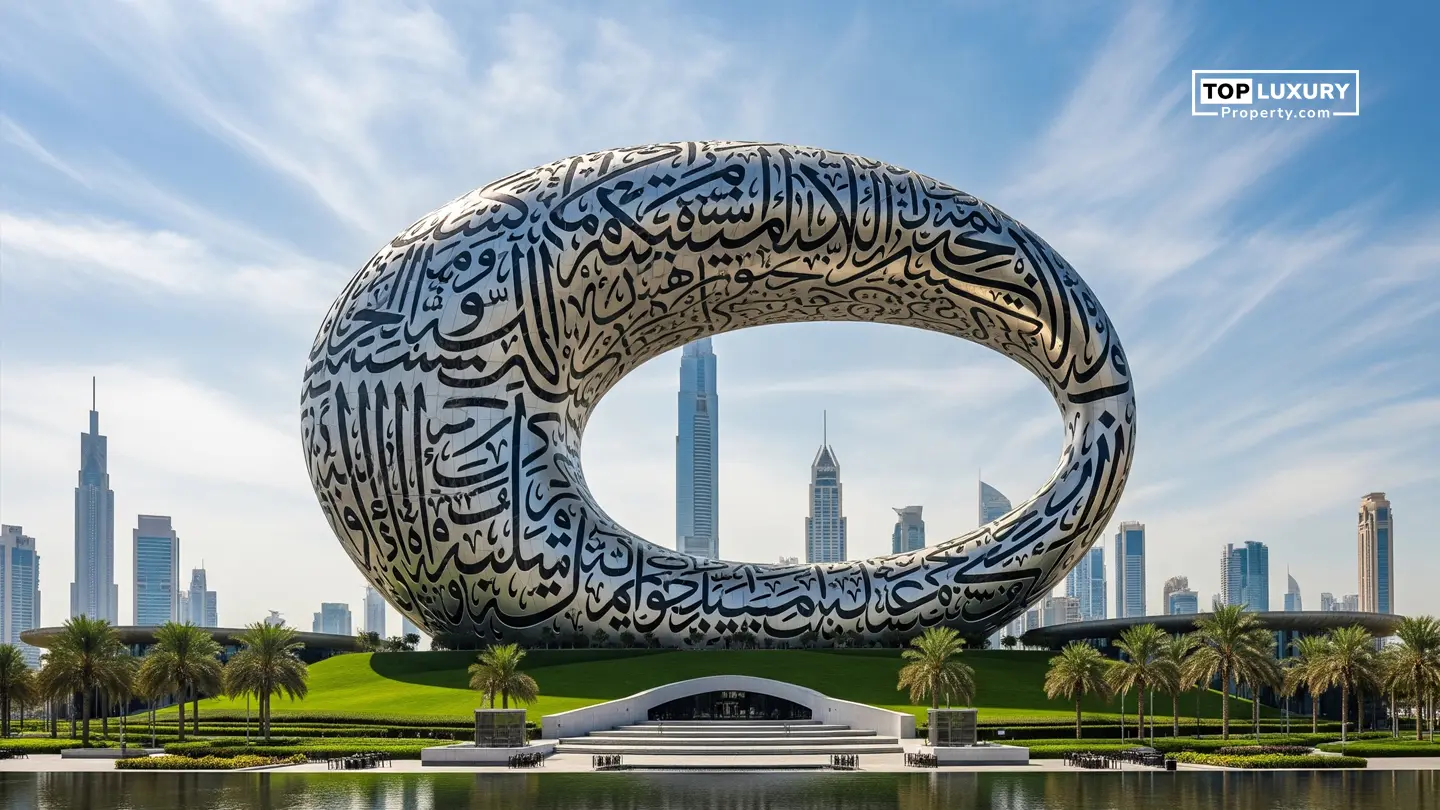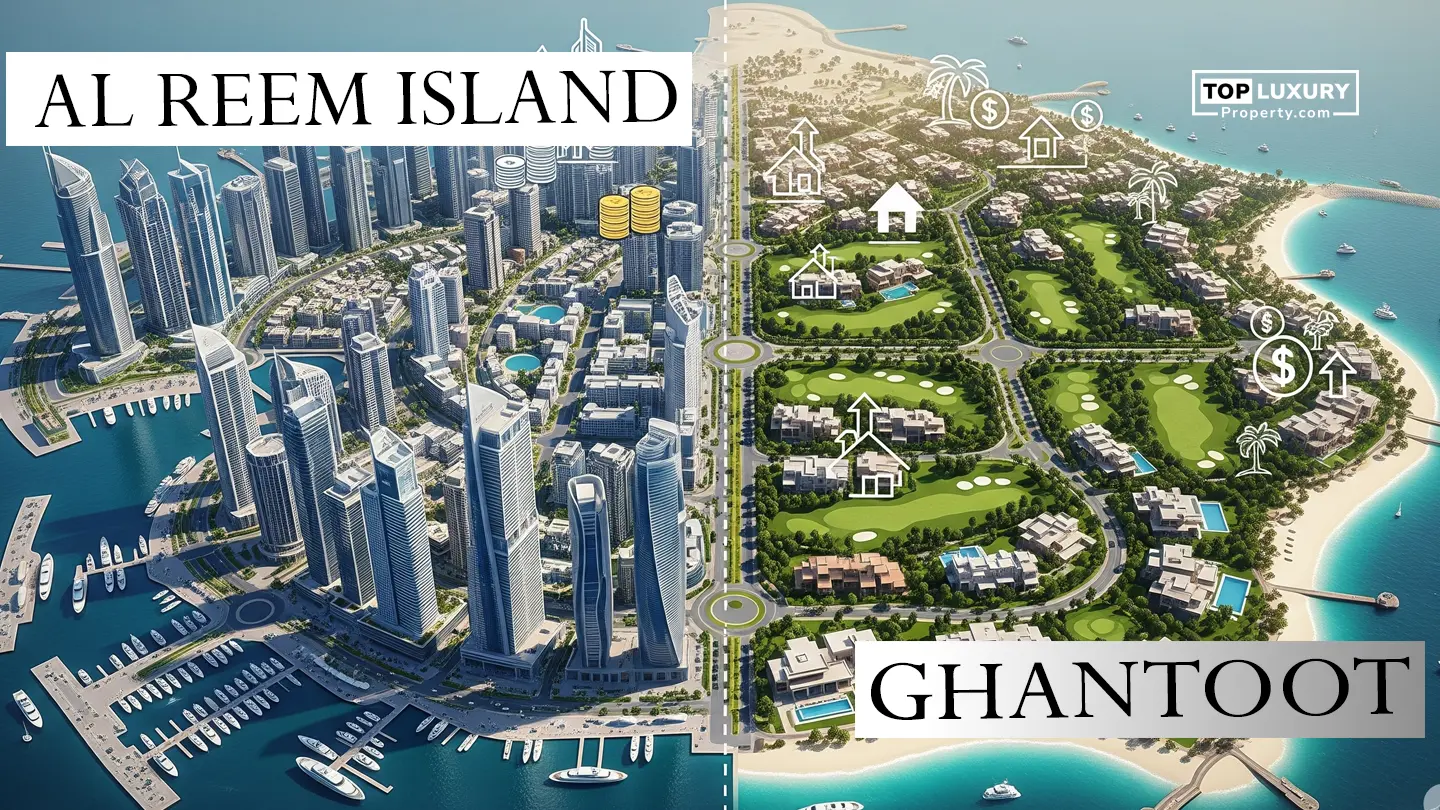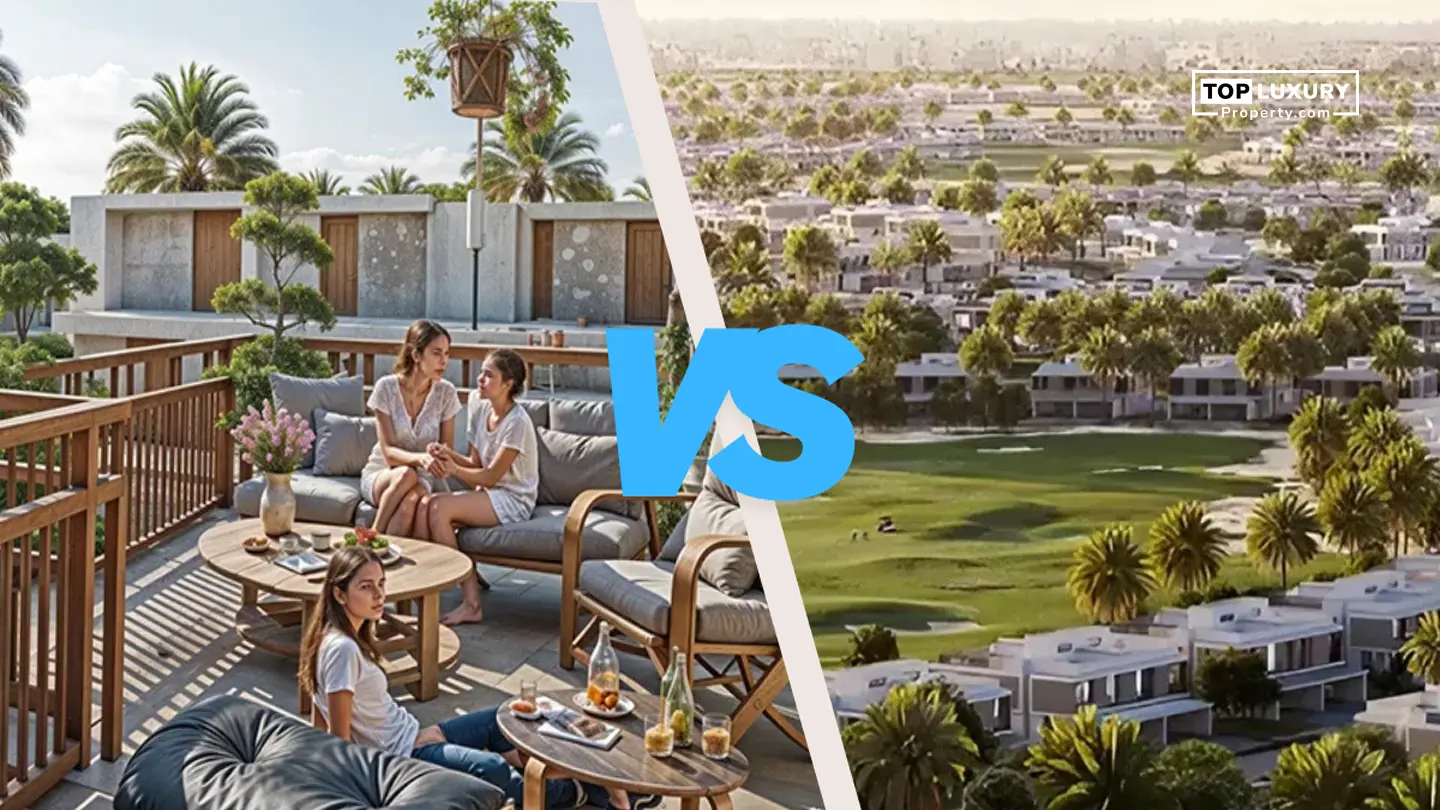UAE Property Buying Guide:-
Investment in the UAE Property Market requires careful insight in the legal frameworks, market dynamics, finances and much more. This UAE property buying guide highlights the top ten considerations you must be aware of before making any purchases.
Understanding UAE Property Ownership Laws:-
Buying property in UAE is governed by a framework that distinguishes between ownership structures and defines who can buy what. Under Real estate laws UAE No. 7 of 2006, freehold ownership is permitted in designated freehold zones to expats, GCC nationals, and UAE citizens everywhere; leasehold or usufruct rights (up to 99 years) are allowed in leasehold zones.
The legal process involves signing a Memorandum of Understanding (MoU), obtaining a No Objection Certificate (NOC) from the developer, and then transferring ownership at the Dubai Land Department (DLD) (or equivalent in Abu Dhabi, Sharjah) with a 4% transfer fee based on property value
In Dubai, working with a RERA licensed agent is mandatory; your broker must have a valid Broker Registration Number (BRN) to protect your interests
Freehold vs. Leasehold: What’s the Difference?
Freehold provides foreigners with outright ownership of land and property, enabling resale, leasing or renovation freedom. The designated freehold areas include Dubai Marina, Downtown Dubai, AI Furjan, Business Bay, JVC, Saadiyat Island in Abu Dhabi, and Yas Island etc.
Leasehold focuses on providing the right to occupy the property for a fixed lease period which is commonly 99 years, but not the land. This is more common among commercial developments and some of the residential zones as well. The choice between freehold and leasehold depends upon the long term goals as freehold is much more suitable for permanent ownership or rental whereas leasehold is suitable for short term usage or commercial ventures.
Key Locations for Property Investment in the UAE:-
Making the right choice regarding location is considered important for both lifestyle needs as well as good return. Some of the top performing locations in UAE are:
| Key Locations in Dubai | Explanation |
|---|---|
| Jumeirah Garden City | being located in the heart of Dubai, widely known for its luxurious and modern living contributing towards the growth potential of investors |
| Business Bay | It is a popular choice among investors due to its proximity to key areas and wide range of properties |
| Dubai South | This area is majorly focused on logistics, aviation and real estate development providing a significant growth potential in the industrial and commercial sectors. |
| Dubai Industrial City | It is a dedicated industrial and logistics hub, currently experiencing a consistent growth as a result of growing demand for manufacturing and warehouse facilities. |
| Palm Jumeirah | It is an iconic man made island renowned for its luxurious villas, upscaled apartments, suitable for investment or residential purposes |
| Key Locations in Abu Dhabi | Explanation |
|---|---|
| Al Raha Beach | This is a stable coastal community providing a balanced lifestyle and majorly attracts families and HNIs. |
| Reem Island | This is particularly popular for the mid tier investors with a strong appeal to city professionals and small families. It has recently shown the highest price appreciation in the first half of 2025. |
| Masdar City | Being widely known for its sustainable designs and eco-friendly initiatives, it attracts various environmentally conscious buyers It has also shown steady growth in the mid tier apartment segment. |
| Al Jurf Gardens | It is a nature inspired coastal community located between Abu Dhabi and Dubai providing villas surrounded with greenery and private beach access |
| Yas Island | Identified as a vibrant lifestyle destination in Abu Dhabi, combining entertainment, waterfront living and premium residential options. |
| Key Locations In Sharjah | Explanation |
|---|---|
| Al Mamsha Raseel | It is a pedestrian friendly community providing modern apartments, blending contemporary living with family friendly designs |
| Sharjah Waterfront City | It is a large-scale sea front development featuring luxurious villas and apartments with direct access to beaches, marinas and retail destinations |
| Hayyan | It is an eco conscious villa community majorly focused on green living. |
| Aljada | Identified as one of the largest mixed use developments providing residential, commercial and entertainment spaces with the modern urban design. |
| Maryam Island | It is a premium waterfront project in downtown Sharjah providing stylish apartments with sea views. |
Furthermore some of the other emerging and affordable investment hotspots are:
Al Marjan Island , Ras Al Khaimah: yields around 8 to 9%, appreciation exceeds around 20%, for properties having value from AED 585,000 up to luxury offerings.
Dubai South and Expo City: strategically located near Al Maktoum International Airport, off plan units start from AED 800000, projected growth is around 15 to 25%, yields are between 6 to 8%.
Dubailand, Majan, Al Furjan, Meydan, Dubai Marina, Business Bay: this is being recommended for off plan areas offering balanced affordability, connectivity, and capital growth potential
Budgeting for Additional Costs and Fees:-
The accurate budget must be accounted for more than just the purchase price. Here’s what all required to be considered in Budget for Additional Costs and fees while Buying property in UAE:
| Fees and Charges | Approximate Value |
|---|---|
| DLD Transfer Fees | Approximately 4% of the transaction value in Dubai, this is usually being split equally between buyers and sellers |
| Real Estate Agent Commission | Approximately 2% of the purchase price along with VAT |
| Mortgage Arrangement/ legal fees | It is roughly between 0.5 to 1% of the property value along with any bank valuation fees generally between AED 500 to 2000 |
| Escrow Requirement | the off plan payments directly go into RERA escrow accounts in order to protect buyers |
| Annual Service/ maintenance charges | This charge generally varies on the basis of development, the majority of the time it is between 10 to 30 AED per square feet |
| Utilities Connection Charges | It is around AED 2000 to 4000 upfront installations along with the security deposits which are refunded later on |
| Inspection/ insurance/ furnishing charges | These charges could add up to 7 to 10% extra in your anticipated budget. |
Eligibility Criteria for Foreign Buyers:-
The foreign nationals are always allowed to make UAE Real Estate Investment, but there are some specific eligibility that vary by emirate. In Dubai, Abu Dhabi, Sharjah and Ras Al Khaimah, the non- UAE residents can make purchases in the designated freehold areas. Dubai provides more flexibility allowing foreigners to buy full ownership rights in various communities such as Downtown Dubai, Business Bay, Dubai Hills and Jumeirah Village Circle.
In Abu Dhabi, expats can make purchases in designated investment zones such as Yas Island and AI Reem Island, however the ownership might be limited to leasehold or usufruct rights in some areas. In order to be eligible, a foreign buyer needs a valid passport along with a UAE residence visa in some cases, especially at the time of applying for a mortgage.
There are certain developers who require a minimum age which is typically 21 plus along with the proof of financial stability. As you are not required to live in UAE for owning a property, but buying a property of AED 750000 or more can make you eligible for a 3 year renewable residency visa and buying a property of AED 2 million or more can make you eligible for 10 year Gold visa, this establishes Property purchase in UAE a gateway for long term residency and investment benefits.
Financing Options and Mortgage Regulations:-
Foreigners can access mortgages if they are financially eligible.The requirements include valid residency visa, proof of income, employment documentation along with a good credit history.
The UAE central bank limits loan to value: it is typically around 80% for a first home, so make a deposit of at least 20% for expats and 15% for nationals. For properties over AED 5M or second homes, LTV drops to 60 to 70%along with the 40 to 30% deposit.
Off plan property allow payment plans: The payment plans for off plan property deals include 10% deposit, step payments, mortgages at the handover balance, this will keep reduction in the initial burden.
Market Trends and Property Value Insights:-
The UAE Real Estate investment is booming: In H1 2025, Dubai has recorded real estate deals worth 32 billion plus with the overall transactions being USD 117 billion across all the segments which pushed price backwards at the 2008 levels with the average price increases of around 75% since 2021.
Luxury and high end segments surged: Properties valued over AED 10 million flew high in demand with the villa supply struggling to keep up, almost 9000 villas were delivered in 2024 and more 19700 are due in 2025.
Fueling of demand: Investors across Europe, North America, India are contributing towards the demand as a result of its tax friendly environment and stability.
Returns: The rental yields vary between 6 to 9% in the areas like Dubai Silicon Oasis (9.3%), JVC (8.6%), Business Bay (7.5%), Palm Jumeirah (6%).
Legal Due Diligence and Documentation:-
Before finalising the Property purchase in UAE, you are required to carry out the legal due diligence as follows:
Take care of Inspection and snagging, you can check structure, plumbing, electrical, damp, finishes. However you can also consider hiring a professional snagging company.
Ensure that the contract includes a valuation clause in Form F in order to withdraw if the bank valuation is lower as compared to the price offered.
You can use escrow payments for the off plan purchases in order to guarantee the developer uses funds for that particular project only.
Tax Implications for Property Buyers:-
There is no such concept of annual property tax or capital gains tax in the UAE property market, which makes it highly attractive for investors. However you are required to pay upfront transfer fees that are around 4% along with the agency commission and other costs as may be required.
Furthermore Dubai and Abu Dhabi have been ranked as the most tax friendly cities across the globe in 2025 by the Tax Friendly Cities Index. Even the rental income is free from taxes, but then also the investors are being advised to consult tax professionals as their home country might tax foreign rental income or gains.
Developer Reputation and Project Reliability:-
The selection and evaluation of developers is considered crucial for project delivery as well as construction quality. Hence consider the following points:
Some of the top developers include Emaar (Downtown Dubai, Arabian Ranches, Dubai Hills Estate), Damac (Damac Hills 2, Lagoon, Sun City), Sobha (Hartland, Solis, Elwood) in Dubai and Aldar leads in Abu Dhabi.
Always check if the developer is RERA registered, escrow complaint and past projects, also check whether it has delivered projects on time.
Research for reviews and on site completed developments. Avoid developers and projects with the history of delays or poor finishes.
Conclusion:-
Buying Property in UAE is not just a regular transaction rather it is an opportunity to invest in one of the fastest growing real estate markets. Each location provides a unique value, whether it is the luxury of Palm Jumeirah or the serenity of AI Marjan Island or the investment buzz in Dubai South. With the right understanding of local laws and the right planning of finances could set up your investments for long term success. The tax free environment of UAE property market and the investor friendly policies establishes it as an ideal destination not just to buy a home but to build wealth. As a result with proper guidance and research, your UAE property purchase could become one of the most rewarding decisions of your life.





